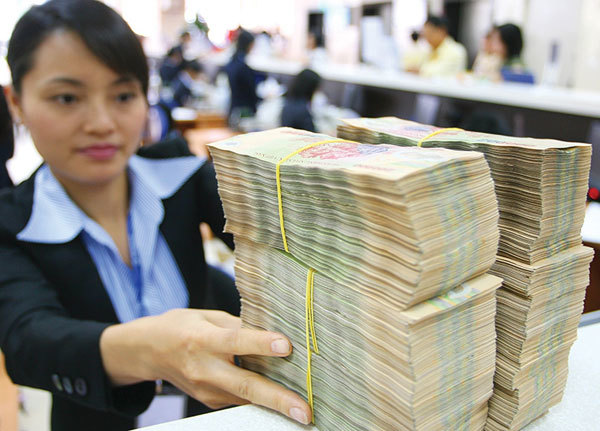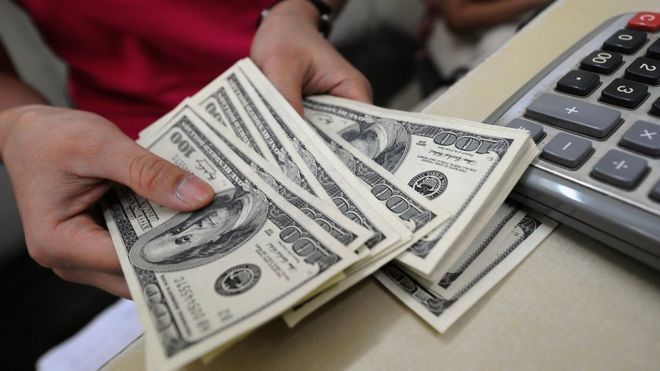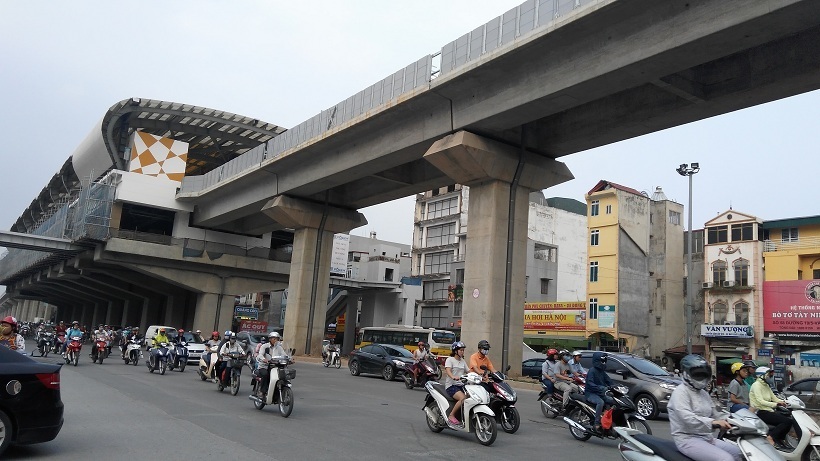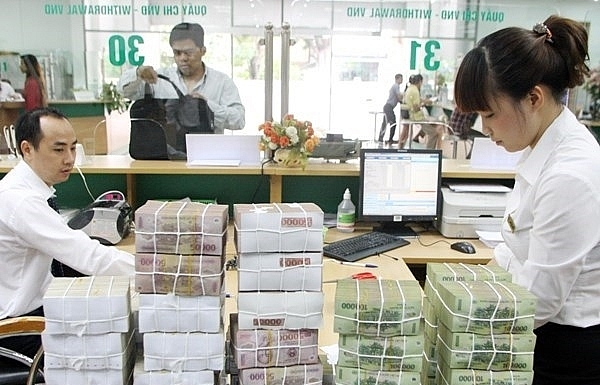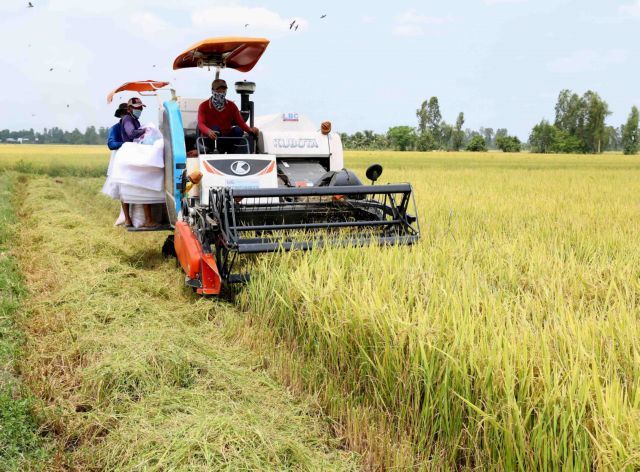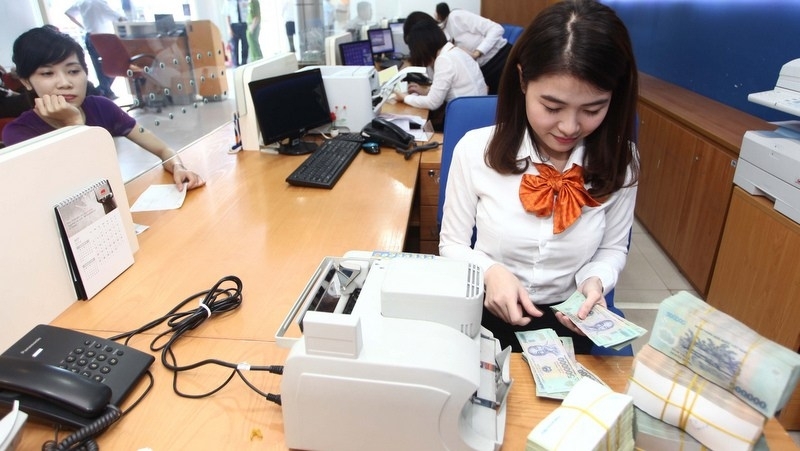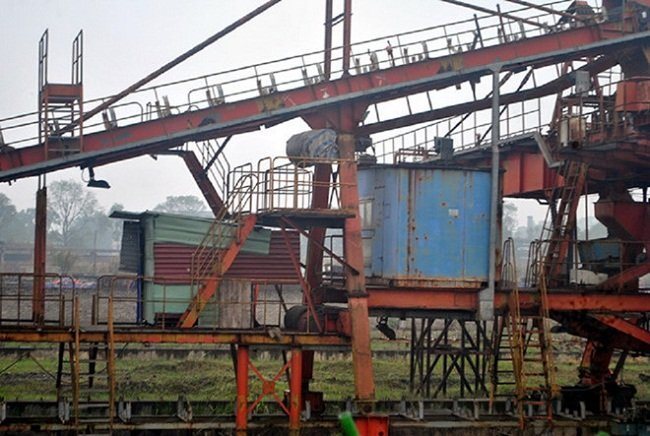- © Copyright of Vietnamnet Global.
- Tel: 024 3772 7988 Fax: (024) 37722734
- Email: [email protected]
public debt
Update news public debt
2020: over-expenditures increase, public debts still within safety line
Because of over-expenditures, the public debts in 2020 are estimated at 56.8-57.4 percent of GDP and the government’s debt 50.8-51.4 percent of GDP, within the safety line set by the National Assembly.
Tight control of debt safeguarding finances
Vietnam has continued to bring public debt under its control, thus ensuring financial security for the country.
Pressure on the Finance Minister
As the holder of the keys of the national treasury, Finance Minister Dinh Tien Dung is facing great pressure.
Public debt: one fourth of state budget collections used to pay debt
The public debt to GDP ratio has been controlled well and has decreased in recent years. But the public debt repayment to budget revenue ratio has steadily increased because of many due debts.
Public debt estimated to reach 56.8% GDP by year end
The government’s report on public debt in 2020 and estimates in 2021 show remarkable figures about the national debt.
Gov't direct debt nears allowable ceiling: NA
The Government’s direct debt payment obligations may reach the permissible ceiling of 25% of the 2020 State budget collections and are expected to stand at over 25% of the State budget collections in 2021,
Growth to spur via raised public debt
The government is planning to raise the country’s public debt in an aim to spur on the economy’s aggregate demand, creating opportunities for international organisations to offer loans.
Authorities get to grips with new bad debt mountain
A spike in the amount of bad loans sitting in banks’ books has triggered Vietnamese authorities to seek new paths to recovery,
Debt limit to be adhered to despite bumps in road
In spite of a dent in state budget revenue and a rise in spending this year causing a big fiscal deficit, the government will be able to retain the country’s public debt situation, ensuring national financial security.
Vietnam's public debt payment at safe levels after pandemic
 The ratio of public debt to GDP is not too high, but the pressure of debt repayment in both VND and foreign currencies will increase in 2020-2021.
The ratio of public debt to GDP is not too high, but the pressure of debt repayment in both VND and foreign currencies will increase in 2020-2021.
Airport investor must use own funds, not rely on Gov’t, NA says
 The National Assembly (NA) has issued a resolution that requires the investor of the proposed Long Thanh International Airport to use its own funds instead of money from the Government.
The National Assembly (NA) has issued a resolution that requires the investor of the proposed Long Thanh International Airport to use its own funds instead of money from the Government.
Is Vietnam too cautious when setting economic development goals for 2020?
 Many economic targets set for 2020 are lower in comparison with real implemented levels.
Many economic targets set for 2020 are lower in comparison with real implemented levels.
Vietnam succeeds in controlling public debt
 A tightened fiscal policy and an effective control of state budget ultilisation have facilitated Vietnam in managing its public debt.
A tightened fiscal policy and an effective control of state budget ultilisation have facilitated Vietnam in managing its public debt.
Trade Ministry transfers 11 debt-laden megaprojects
 The Ministry of Industry and Trade has transferred the jurisdiction over State capital at 11 out of 12 loss-making megaprojects to the Commission for the Management of State Capital at Enterprises.
The Ministry of Industry and Trade has transferred the jurisdiction over State capital at 11 out of 12 loss-making megaprojects to the Commission for the Management of State Capital at Enterprises.
Picture of Vietnam unobserved economy
VietNamNet Bridge – Pham The Anh, from the National Economics University’s Faculty of Economics, speaks to Tuổi trẻ (Youth) newspaper about the role of the unobserved economy in the national economy.
The plan to pay back public debt in 2019
VietNamNet Bridge – Dinh Tien Dung, Minister of Finance, talks to Thời báo Kinh tế (Việt Nam Economic Times) about Vietnam’s plan to pay back its foreign debts in 2019.
A broader view on Gov’t guarantees required
VietNamNet Bridge – For many years, Vietnam’s Government has been acting as a guarantor for a lot of investment projects.
Economists worry about economic growth as national debt grows
Heavy reliance on FDI and high national debts are the two biggest concerns for Vietnam’s economy, experts say.
Vietnam seeks more capital from domestic sources
VietNamNet Bridge - Vietnam is step by step shifting from relying on foreign debt to seeking domestic capital sources.
High public debt – the haunting worry
Analysts say Vietnam is facing dual difficulties: it has to prepare for the period when ODA (official development capital) capital will decrease, and must also bear pressure as 50 percent of domestic debts will be due in three years.

